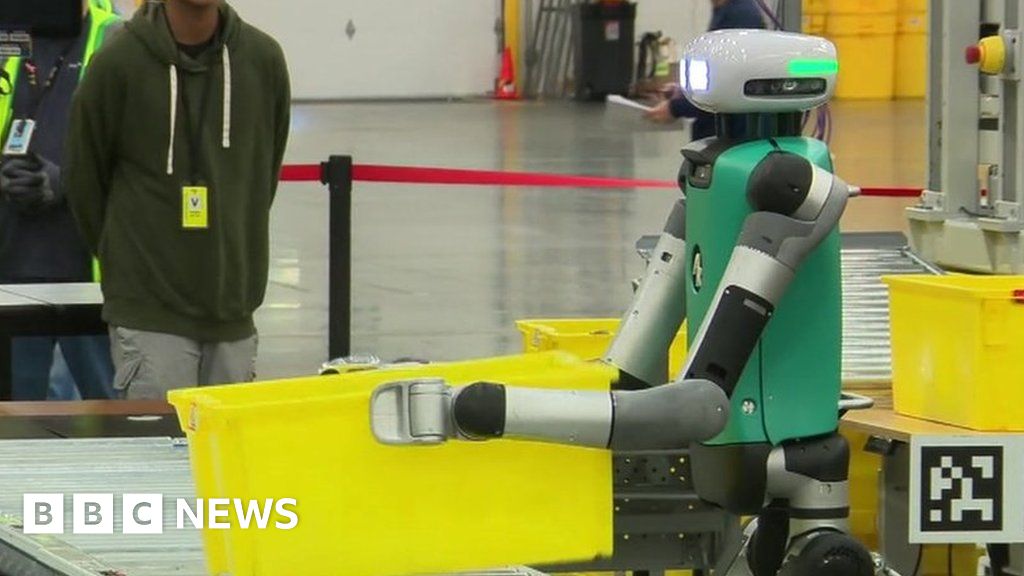- The Recruiting Life
- Posts
- From Israel to the U.S.: HR Responses to Global Conflicts
From Israel to the U.S.: HR Responses to Global Conflicts
Handling Employees in Times of War

This week’s newsletter is brought to you by Jobin.cloud
In this issue:
From Israel to the U.S.: HR Responses to Global Conflicts
Foreign-Born Workers in the US Workforce
Why go to college today if AI will be doing the job tomorrow?
How do recruiters feel about the job market these days?
Holiday gifts for your recruiting team
Why should I hire you?
The Week in Recruiting

CHART: Foreign-Born Workers in the US Workforce
Number of foreign-born workers in the US workforce is at an all time high | Source


From Israel to the U.S.: HR Responses to Global Conflicts
It’s an interesting time to be alive; and its downright scary if you are in Israel. I would think that an all-out war would put all business to a standstill, but life continues, and it has raised several HR issues. Among them: disruptions in international business, leave requests from employees shaken by the violence, and even arguments in offices. Palestinians in Israel are facing a backlash at work and places of study after the Hamas attack on October 7, with some being suspended from their jobs over the war. (It is important to note that the job crisis in Palestine existed before the current conflict, with unemployment approaching 30 percent on average and remaining stubbornly high especially for youth and women. But I digress.) Business leaders have also made public statements about the conflict, and some companies have temporarily closed their offices or instructed their employees to work from home. Israeli startups are seeing 10% to 30% of their workforces mobilized in the war, and some young executives and employees are joining the fight. Overall, while people are still working in Israel, the ongoing conflict has had an impact on their workplace and it makes me wonder how US companies have treated their employees in times of war.
From what I have found, companies tend to provide their employees with support and flexibility during times of conflict. For example, allowing employees to work from home, providing paid time off for employees to deal with personal matters, and offering mental health resources. A few historical precedents…
World War II

G.I. Bill: The Servicemen's Readjustment Act of 1944, also known as the G.I. Bill, provided World War II veterans with funds for college education, unemployment insurance, and housing. It put higher education within the reach of millions of veterans of WWII and later military conflicts.
Financial incentives: Companies offered financial incentives to encourage employees to work during the war. For example, some companies offered bonuses to employees who met production targets and wages increased.
Pension program for workers: The Social Security Act of 1935 established a federal old-age pension financed with employee-employer payroll taxes for most workers in commerce and industry. A benefit weighted toward lower-paid workers was to be based on cumulative wages and was to be payable beginning in 1942 to persons aged 65 and over who had paid Social Security taxes for at least 5 years.
Iraq War

During the Iraq War, many companies in the United States provided various forms of support to their employees, including financial assistance and mental health resources. AT&T, for example, provided its employees with a one-time bonus of $1,000. This bonus was given to about 200,000 of its U.S. employees after lawmakers successfully passed tax reform in 2017. Other companies, such as Dyncorp, a firm based in Texas, provided resources for their workers returning from Iraq who were dealing with combat-related mental health issues.
Current war in Ukraine

During the current war in Ukraine, companies in both Ukraine and Russia, support their workers with proactive, evacuation, provisional, and financial support. Other companies, like JustAnswer, continues to support their workers in a number of ways. To quote…
Russia’s invasion of Ukraine last February was a major historical event. But for our company, the war was personal. While our headquarters are halfway around the world in San Francisco, JustAnswer employs more than 300 people, about one-third of our workforce, in Ukraine. These humans fill critical roles not just in IT but also HR, finance, and other departments. Knowing our employees were in danger required immediate action to relocate people to safer locations.
Nearly a year later, while much of Silicon Valley is no longer talking much about Ukraine, our support continues stronger than ever and in new ways: from funding mental health centers and drone pilot schools to delivering diesel generators. Not only have we kept the lights on for our Ukraine employees, but we have also hired over 50 people there since this war started. Through all this, we have learned crucial lessons about life, business, and humanity that anyone leading a team through a stressful crisis could benefit from.
Many companies have donated to humanitarian relief efforts. For example, Epic Games raised $144 million for Ukraine relief efforts, donating two weeks' worth of proceeds from its hit video game Fortnite. Other companies like Boeing, Visa, Mastercard, Lilly, Abbott, Bunge, GE, IBM, Johnson and Johnson, Pfizer, Wabtec, Cargill, Mary Kay, Caterpillar, Delta, Baker McKenzie, and ADM have also made significant donations to support Ukraine. And even more company actions are cited on this page.
Companies may also make changes to their business operations in order to accommodate the needs of their employees during wartime. For example, a company may need to relocate its operations to a safer location. In 2022, IBM relocated its operations from Ukraine to Poland in response to the Russian invasion of Ukraine. The company also provided financial assistance and relocation support to its employees who were affected by the war. And in 2014, ExxonMobil relocated its employees from Russia to other countries in response to the annexation of Crimea. The company also suspended its operations in Russia and divested from its Russian assets.
I find all these measures best practices in times of war; no matter where the conflict happens. I think its not only good for the employer brand but, overall, it is the right thing to do. Hopefully, war will not come to our shores again. When I watch the news however, I can’t help but wonder not if, but when. Should that day come, here is a checklist I suggest companies follow. Please make a note of them and pray you never need it.
Should the worst happen here at home:
Check in with employees in the conflict zone: Let them know that the company is aware of the situation, is monitoring it, and that their needs are being prioritized. Remind them that their personal safety is of utmost importance and that work falls much further down the list of priorities.
Provide relocation assistance: After ensuring employees' safety, HR should check on employees' relocation needs. Many people may need to flee the war zone, and companies can provide assistance with relocation to ensure their safety.
Evacuate expatriates: Companies should evacuate expatriates, because they have responsibility towards those employees that they have brought in.
Help employees manage their emotions: Managers can help employees cope with the stress and trauma of war by providing emotional support and counseling services.
Do something proactive to support the country: Companies can do something proactive to support the country, such as donating to relief efforts or providing resources to help rebuild.
Understand legal obligations to employees in the military: Employers have legal obligations to employees who have been called to active military duty or who are members of the United States National Guard or Reserves. These obligations include providing the same benefits and privileges of employment as those given to all other employees.
And it should go without saying but I will mention it anyway. According to your own faith, pray that the situation is resolved quickly, and all is well soon. In fact, pray now. I’ll go first. God bless America. Amen.


Sponsored post:
Jobin: All-in-One Prospecting Automation Tool

Jobin.cloud serves as an all-in-one automation tool to find and engage with people. Its features include lead generation, X-Ray searches, multi-channel outreach, and personalized message creation using LinkedIn data with the help of ChatGPT.
The platform also offers free sourcing automation, LinkedIn automation, contact finding, and a built-in ATS/CRM system with pipelines management, all seamlessly integrated for ease of use when bundled together or used individually.
Try it now. No credit card required. Or, check out this step-by-step prospecting workflow with AI and automation.


The Jim Stroud Show
How do recruiters feel about the job market these days? | How will robots in the kitchen affect recruiting? |
70% of workers lie on their resumes | The New Taboo: Discussing Student Loan Forgiveness |
The Jim Stroud Podcast
Why go to college today if AI will be doing the job tomorrow?
Jim Stroud interviews Jean Eddy, President and CEO of American Student Assistance, about future-proofing the careers of today's college students. Pretty much, why go to college today if AI will be doing the job tomorrow? Other discussion points:
The education system needs to redefine what "career success" means for today's learners
Students must achieve early access to diverse career paths.
Top skills students need to obtain in high school for the jobs of tomorrow
Advice for parents who may be concerned about their children pursuing non-traditional educational paths or careers
The broader societal impact of reshaping education and career readiness
And more...

Comic: Why should I hire you?


Holiday Gifts for Your Recruiting Team
Support the recruiters and sourcers on your team with cool merchandise! This is some of what is available in my RedBubble store.
More merch is available here. Get it for yourself and to support your team of recruiters and sourcers. Happy holidays!



One more thing…

JIm Stroud speaking in Budapest
I speak on the future of work. Book me now for your HR conference or corporate event. Click here for more information or, reply to this email and let’s have a conversation.
Jim Stroud












